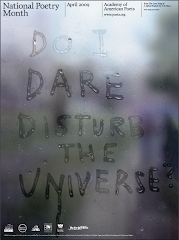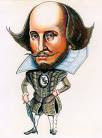1. I would like to simply say "she is brilliant," but I think that's not quite enough. I believe we should read Virginia Woolf because she has an uncanny ability to very precisely understand human beings. Shakespeare may have invented the human, but Virginia Woolf brought it to life.
2. We should read Virginia Woolf because she forces us to think. She insists that we recognize issues in our world and in our lives, and she insists that we consider these issues and deal with them. She refuses to let us remain comfortable in our world without justifying parts of it... which can be hugely intimidating and disruptive and difficult, but it is also frequently extraordinarily rewarding.
3. We should read Virginia Woolf because reading her works completes the woman's sentence. I believe that she wrote it (particularly in Mrs. Dalloway... although that might be also the human sentence... and maybe they'll always be one and the same), but I also believe that nothing written has real cultural value until it is read... so we should read her to complete her work, to make it a part of the world, to make it matter.
Reasons to read Michael Cunningham's The Hours:
1. The Hours is nearly as insightful into "the human condition" (gee, how about I use the most over-used phrase ever?!) as Virginia Woolf's writing tends to be, and it is more easily accessible than Woolf. Maybe what I'm trying to say is that Cunningham is more readable, particularly by people who may not study literature all the time, but it is just as meaningful and important... which may mean that this has even more value than Mrs. Dalloway because it can reach a wider audience... (I'm not sure I really believe that last bit... but I do think that we need to give Michael Cunningham credit for making these women's lives accessible).
2. I think one source of value in the text is Cunningham's acknowledgement of homosexuality that is incredibly unimposing or intimidating. What I'm trying to say
 is that, until Ann Page pointed out that it was clearly written about the gay community and (some people claim) for the gay community, I hadn't even realized that almost every lead in the book is gay or experiments with their sexuality. Maybe that's just evidence of my obliviousness... but I'd prefer to call it a facet of Cunningham's genius; he addresses a very important and controversial issue without making us uncomfortable.
is that, until Ann Page pointed out that it was clearly written about the gay community and (some people claim) for the gay community, I hadn't even realized that almost every lead in the book is gay or experiments with their sexuality. Maybe that's just evidence of my obliviousness... but I'd prefer to call it a facet of Cunningham's genius; he addresses a very important and controversial issue without making us uncomfortable.3. We should read The Hours because it finishes (or extends?) what Virginia Woolf started. He pushes the limits of her work (not that I would call her work limited), and he has managed to (quite successfully) modernize the issues of her work to fit the present day. I wonder who will be the next in line to extend this story on to future generations...?
Three reasons to read Mrs. Dalloway first:
1. Half of Cunningham's very clever allusions are lost without knowledge of Mrs. Dalloway.
2. More importantly, half of the impressiveness of Cunningham's innovations and creations is lost without having first read the work that inspired him.
3. Reading The Hours inspires many to want to reread Mrs. Dalloway. If we hadn't read Mrs. Dalloway previously, I doubt that The Hours would inspire us to read Mrs. Dalloway a first time. I think that reading Mrs. Dalloway makes The Hours richer, and I think that then going back to Mrs. Dalloway a second time makes them both even more complex and complete. (And one might argue that The Hours would inspire us to read Mrs. Dalloway... but I still think Mrs. Dalloway benefits from multiple readings... so I still vote MD --> Hours --> MD.)













Abby,
ReplyDeleteI love that you pointed out the idea that Woolf "brought the human to life." I completely agree. I, of course, think that many other authors fit that idea as well, but I haven't read one in awhile. I think that Woolf understood Shakespeare's need to present the interior of many of his characters. I think that her work looks a lot like some of Shakespeare's soliloquies. I mean look at Hamlet's most famous interior monologue. It is very similar to the thoughts that Septimus and Clarissa have throughout the novel. She pays attention to what makes humans human, and I admire her for that, even though she can be a difficult and intimidating read at times.
I also agree with your statement that many of Cunningham's allusions would be lost if a person read his work before Woolf's. We wouldn't be able to observe all of the motifs that he represents (minus Peter's pocketknife) in "The Hours." All the flowers, birds, and references to time would be lost. I don't think we'd feel any less for the characters, of course, because they are well-developed and beg to be cared for. However, the clever allusions would certainly disappear.
-Megan R.